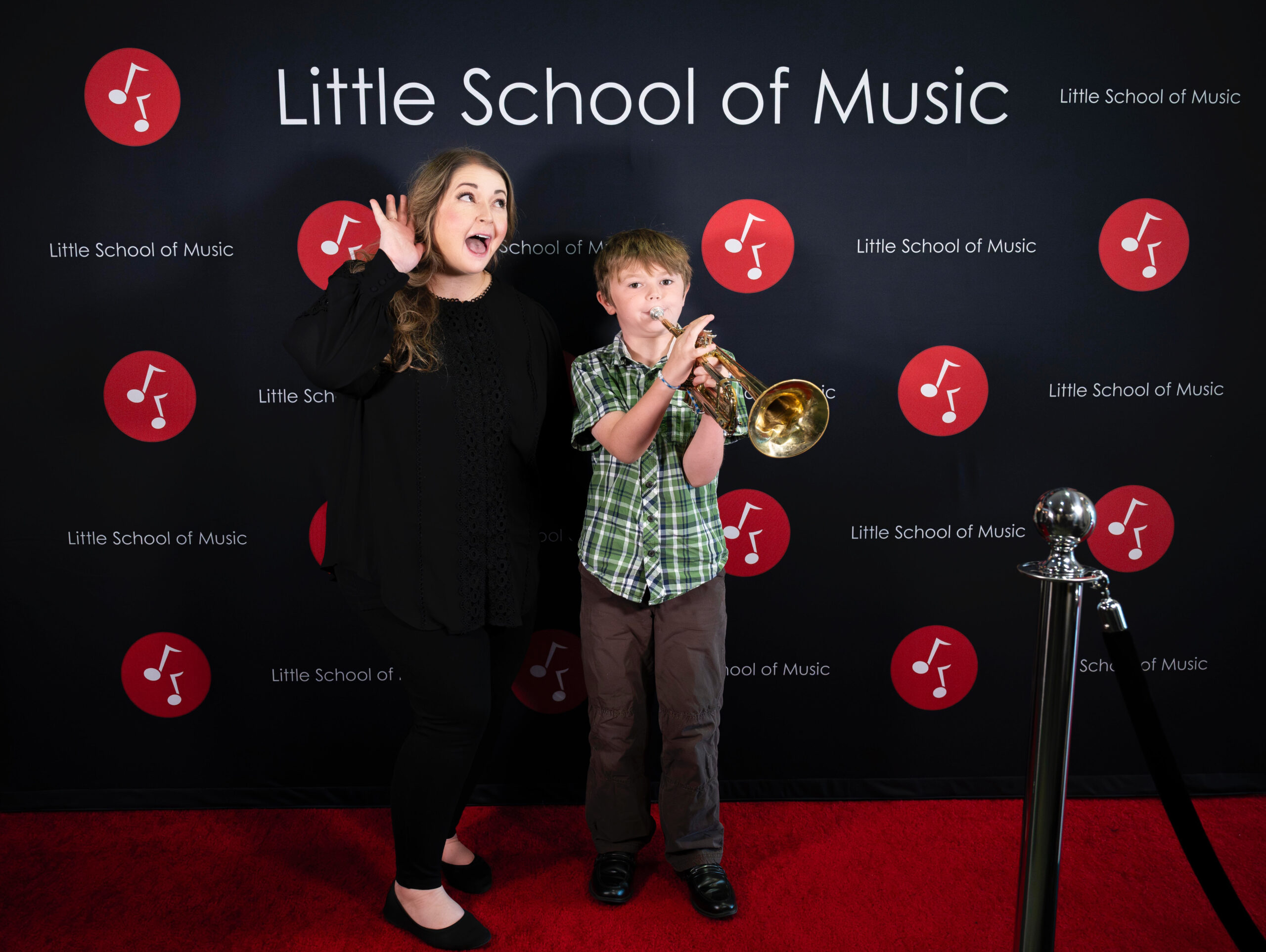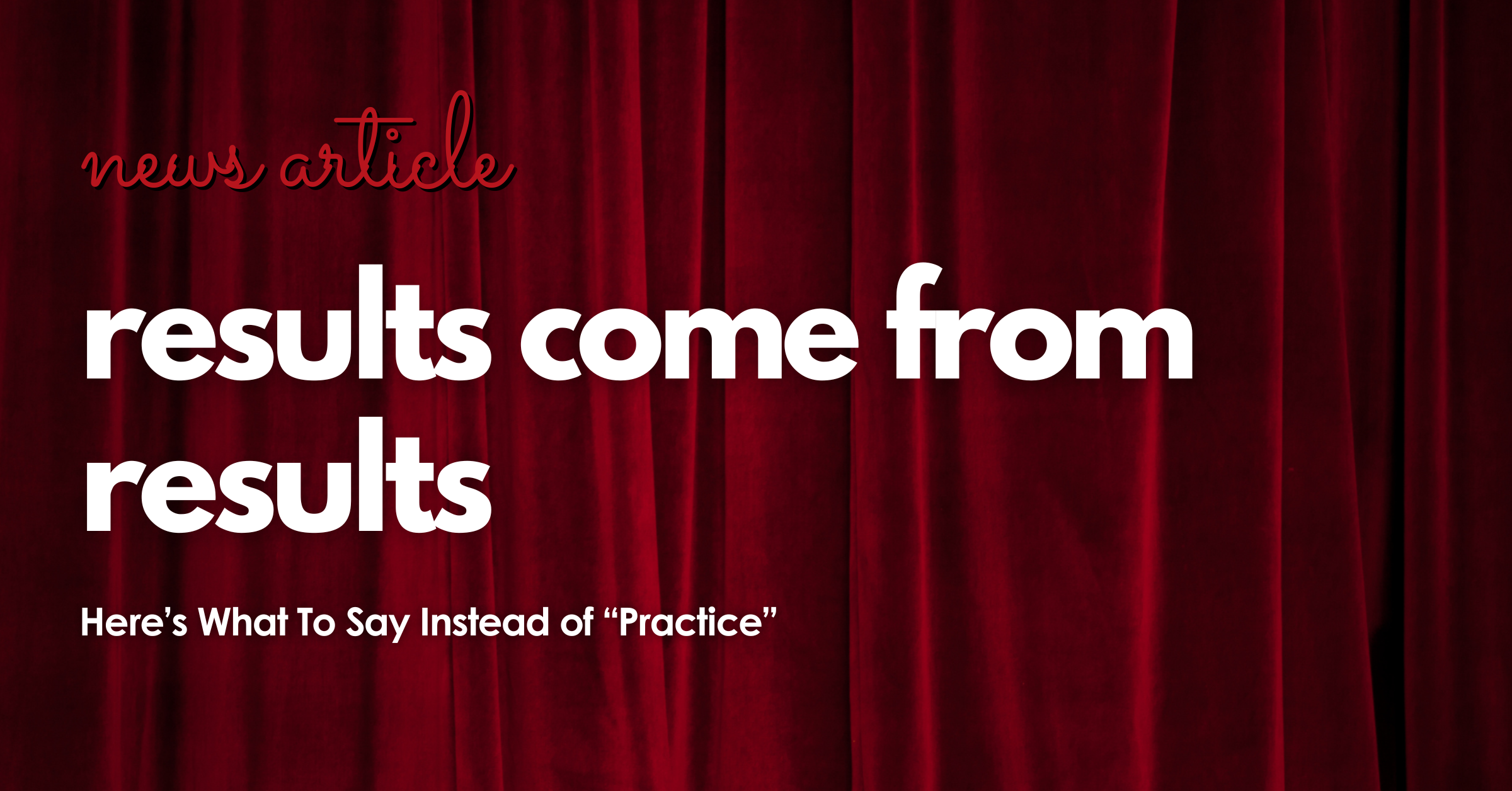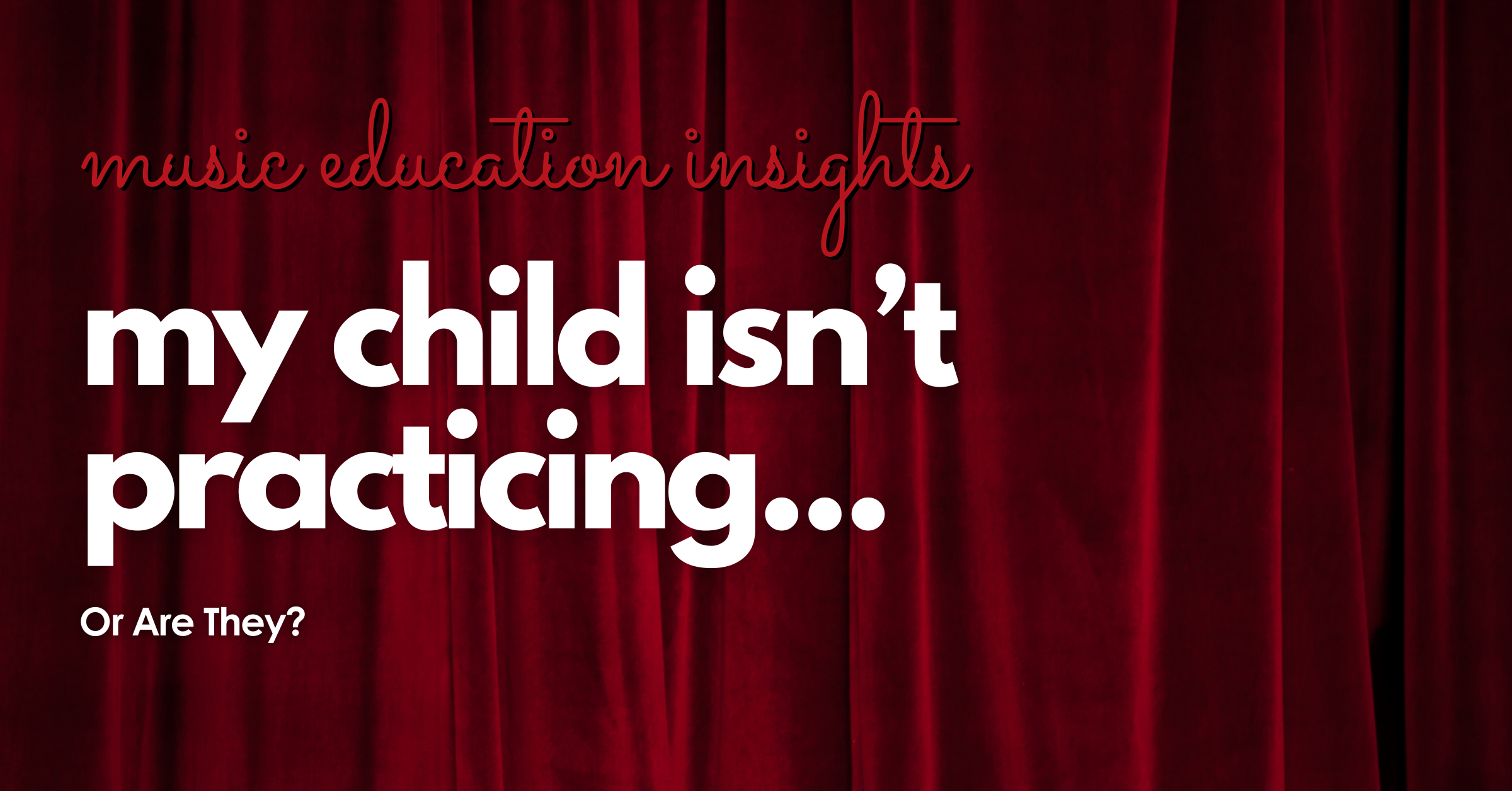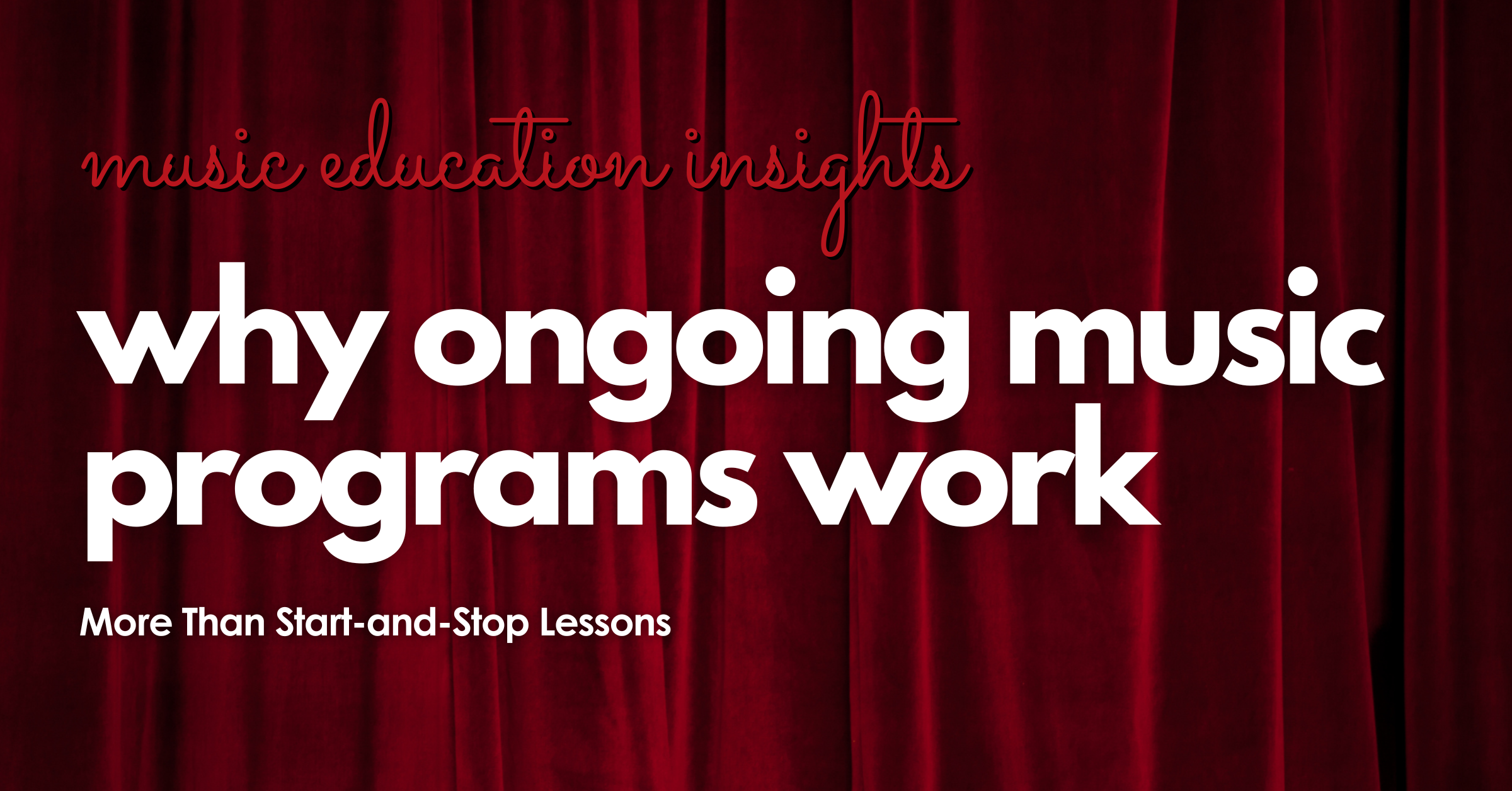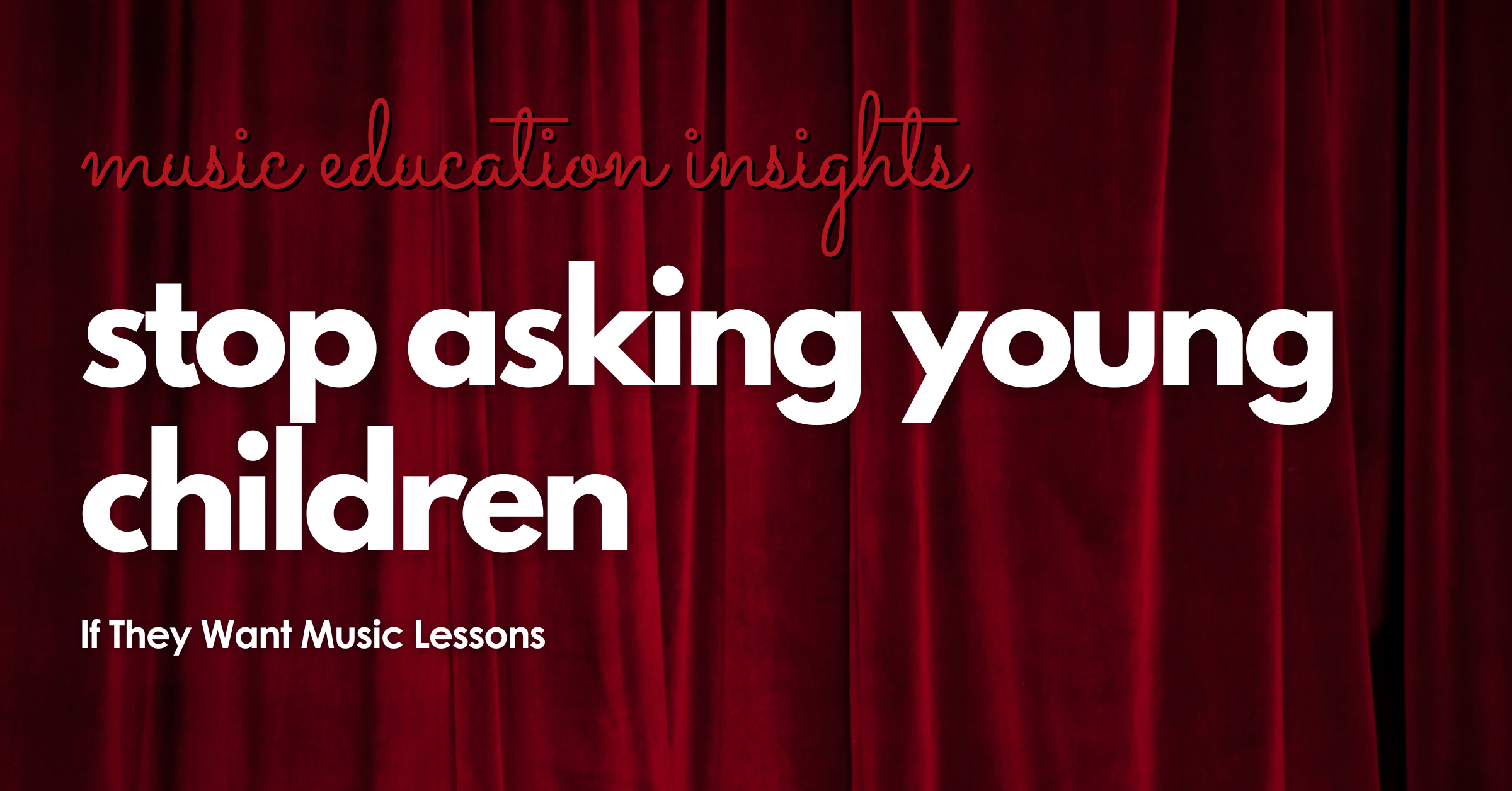Results from Results, by Mindy Cabral
I’m not going to use the word “practice” anymore. Here’s what I’m going to do instead.
I just finished a lesson with a young trumpet player learning the concept of results. The conversation went something like this:
Me: What are results? What does it mean to have or get results?
🎺: I don’t know.
Me: Results are the outcome of doing something or not doing something.
🎺: Like doing good or bad on a test.
Me: Yes, exactly! What has to happen to get a good grade?
🎺: You have to listen, read the book, and do homework.
Me: Yes, all those things—which means attending class, bringing all your materials, taking notes, studying at home… This is all part of what you need to do to get the result you want.
🎺: Yeah, you have to do all that, or you won’t get a good grade.
Me: And what do you think happens if you don’t get a good grade?
🎺: You didn’t do those things, or maybe you were distracted, talking to friends or playing games or something.
Me: Exactly. Or maybe you didn’t do enough of what we mentioned before to get the result you wanted.
🎺: Yeah, that makes sense.
Me: So, do you think the preparation you put in affects the results you get?
🎺: Yes, it does.
Me: Playing music is the same. You need to go through the stages of preparation to get the results you want—to play the music!
Phase 1: Gather all your materials: instrument, music, tuner, valve oil. Start by “plunking out” the notes. Learn the pitches and fingerings, playing them over and over until they’re comfortable.
Phase 2: Add rhythm and timing. Slow down the tempo and break the music into smaller sections. Once you’re comfortable, speed up and connect sections to play more fluidly.
Phase 3: Create a musical story with expression. Add dynamics, articulations, and tempo changes as marked. If there aren’t any, add your own to suit the music’s character.
Do this until you reach the result you want—playing the music and making it mean something.
But here’s another question: What happens once you can play the music? What is a result from the result?
🎺: I’m not sure.
Me: Well, a few things come to mind. One is that over time, as you do this with more music, you get better and faster at learning it. You begin recognizing patterns and symbols more easily, and can combine the phases into fewer steps.
🎺: Okay, yeah—you have to do it a whole bunch of times at first, but then you get better at it so you don’t have to do as much later.
Me: Another result from the result is how it feels to have accomplished something. Do you feel happy, proud of yourself, and excited to play the music for your mom?
🎺: Yeah, I do!
Me: So, would you say the result of the result is actually what you’re trying to accomplish?
🎺: Yeah, it is. That makes sense.
The word “practice” often has a negative feel—”Go practice!” Yes, but how does that make you feel? Many students don’t know how to practice or understand what effective practice involves.
Often, they just play through the music without knowing if it’s correct, and parents, with limited musical knowledge, might not recognize if it’s right or how to help.
A different mindset helps us achieve something with purpose, rather than just grinding through reps. Thinking of preparation to achieve a result is more purposeful and is something you want to do to accomplish a goal.
Preparation comes in many forms, not just practicing the music. Practicing is only part of the preparation. Prepare as much as it takes to achieve your desired result. 🎯
- “Here is what to prepare for next week’s lesson.”
- “For the concert, you need to have prepared…”
- “Come prepared for class by…”
It might be important for teachers to take the time to talk to students and parents about what it means to be prepared so they have an example and expectation. Ask them what they think they need to do and make a list. Then add anything else missing.
Here are a few things to get started:
- Have your instrument tuned and in working condition
- Bring your music, books, a pencil, and a notebook
- Arrive on time for the lesson (usually this means a few minutes early)
- Be ready to play the assignment from last week to the best of your ability
- Listen to the instructor and follow their directions
- Ask questions if you need additional explanation
- Prepare the assignment for the following lesson according to the instructions given by your instructor.
- Attend your lessons regularly
- Stay consistent and focused
If you decide to replace “practice” with “prepare” let me know how it works for you! If you have other preparation ideas, please share them with us on our socials: Facebook, Instagram, X, and TikTok
